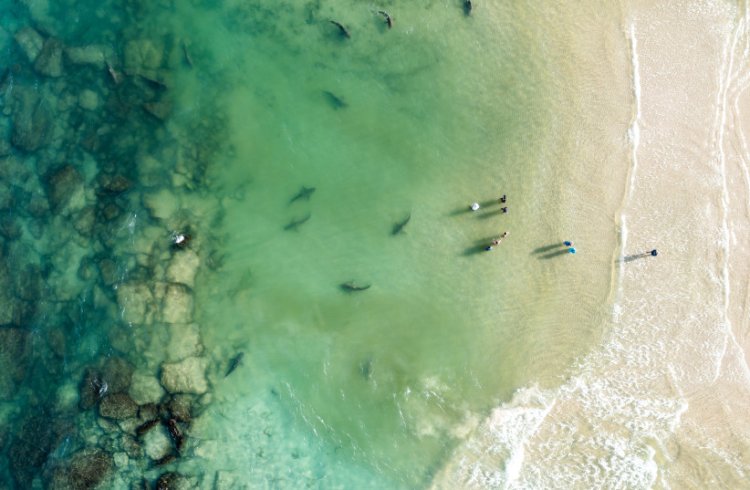THE TRAGIC END OF A FATHER LOST TO A SHARK ATTACK

After 24 hours of desperate hope and heart-wrenching waiting, Israel mourns.
The remains of Barak Tzach, a father of four, have been found after he went missing following a shark attack while snorkeling off the coast of Hadera. The 40-year-old man from Petah Tikva is gone, but his story leaves a deep wound in the hearts of his family and community.
What began as an ordinary afternoon at the beach—a place where people usually find peace and escape—ended in a nightmare.
Barak, as he often did after work, came to the shore not to seek thrills, but to pursue his passion for marine life. Equipped only with a snorkel, fins, mask, and a GoPro, he entered the water to observe and document the beauty of the sea. He brought no bait, no fish, and no intention of provoking anything.
His wife, Sarit, shared a heartbreaking message on Facebook:
"With deep sorrow and pain beyond words, we announce the passing of our beloved husband and father. I want to end the false rumors and tell the truth..."
She explained that Barak wasn’t feeding sharks or playing with danger. He was simply filming them from a respectful distance. According to a fisherman who witnessed the incident, Barak had been swimming near a shark and slowly drifted into more open waters.
When the sharks began to get too close, he gently pushed them away with his GoPro stick. The fisherman called out for him to return. Barak began swimming back — slowly — and that was when the attack happened.
Witnesses on the beach saw blood in the water and heard screams for help.
He disappeared in an instant, and panic spread across the shore.
An extensive multi-agency search began immediately, involving police, military, rescue teams, divers, and volunteers. Everyone hoped for a miracle. But on Tuesday afternoon, the Lehava Unit divers found what they feared — Barak’s remains.
Elsewhere, beachgoers were warned to stay out of the water as sharks were once again seen near the shore. Authorities shut down several beaches between Hadera and Poleg Beach in Netanya.
Experts believe the sharks moved closer to the coastline following a mass fish death near the mouth of the Alexander River.
Itamar Avishay, scientific director at EcoOcean, explained:
"Shark attacks are rare, even globally. Sharks are not naturally aggressive toward humans. There’s really no reason to fear them — but we must remember they are wild animals in their natural environment. Provoking them may cause them to defend themselves."
Doron Elmashli, commander of the Lehava Unit, added:
"The shark is a fighting machine. Do not approach it for pictures. Its reactions are unpredictable."
Today, the waters of Hadera are no longer just a scenic beach.
They are a silent witness to a loss beyond measure — of a man loved by many, a father who never returned, and a reminder of how fine the line is between admiration and caution.
What's Your Reaction?




















